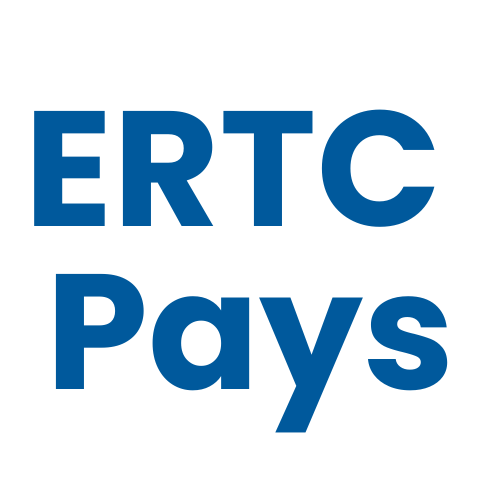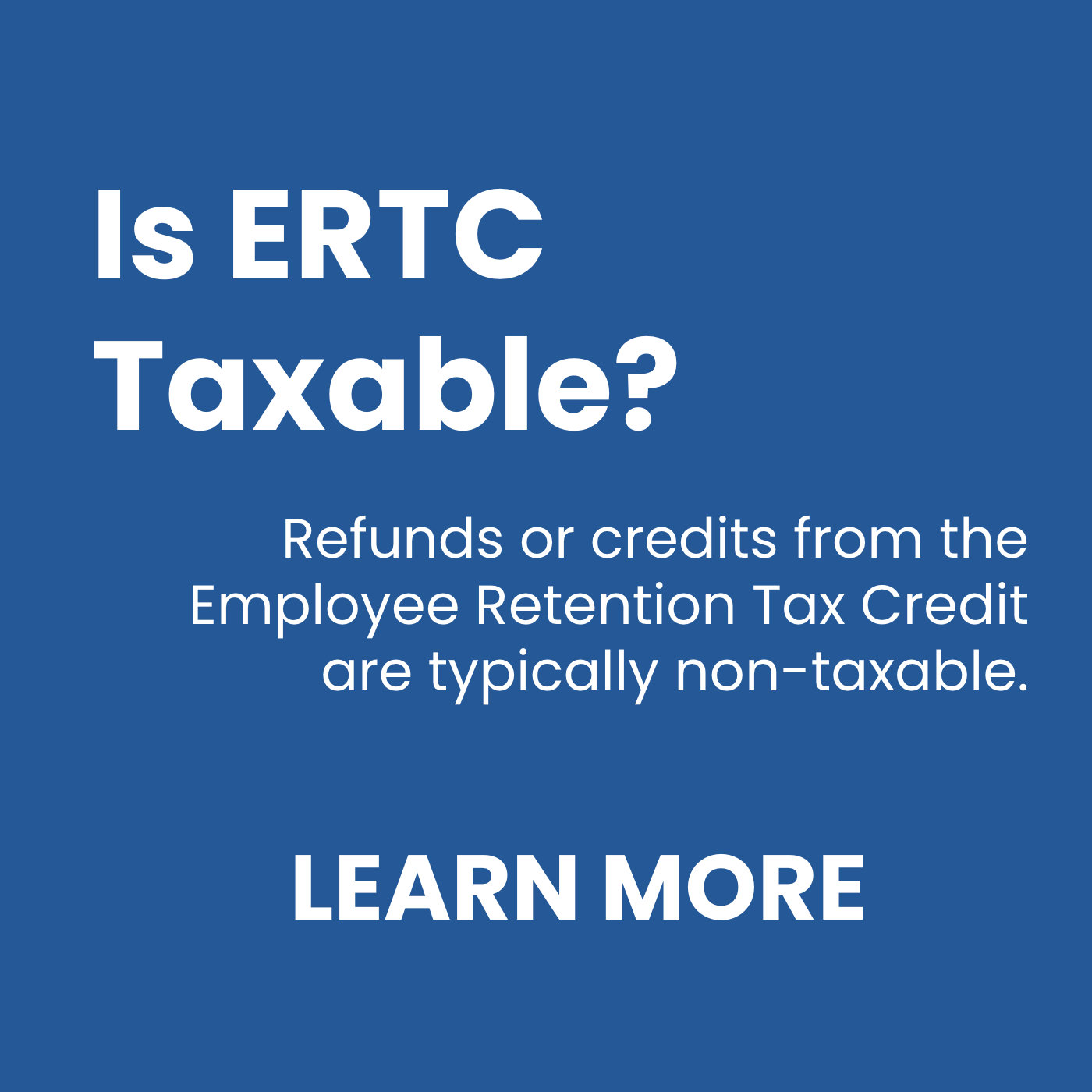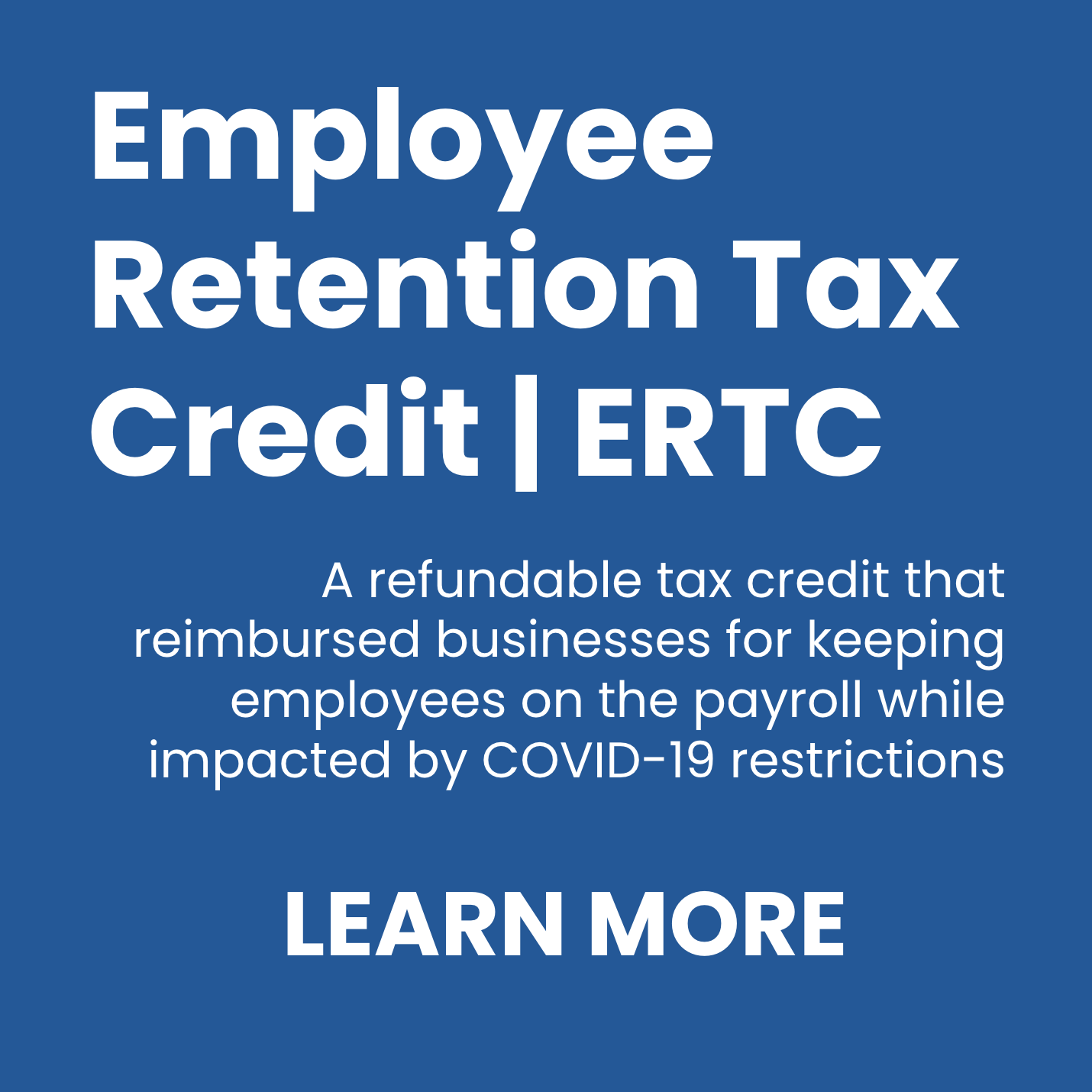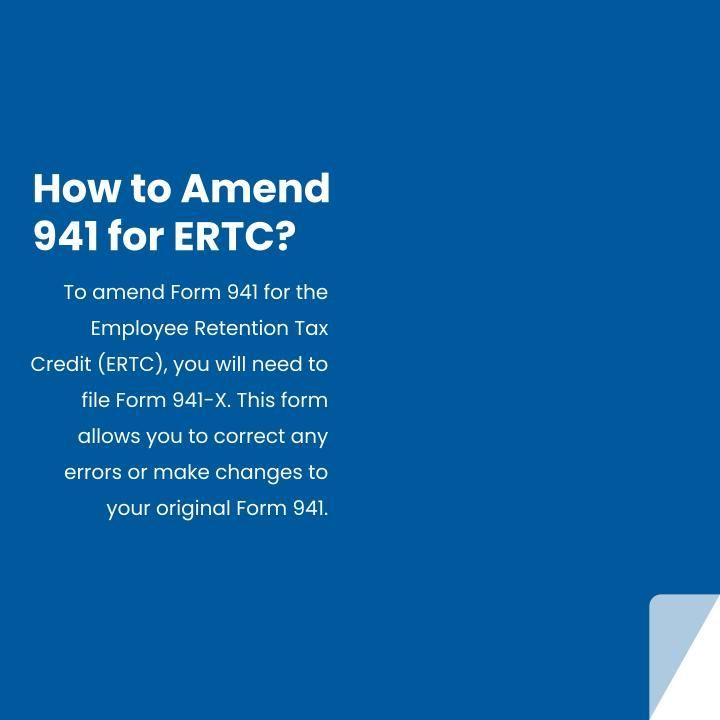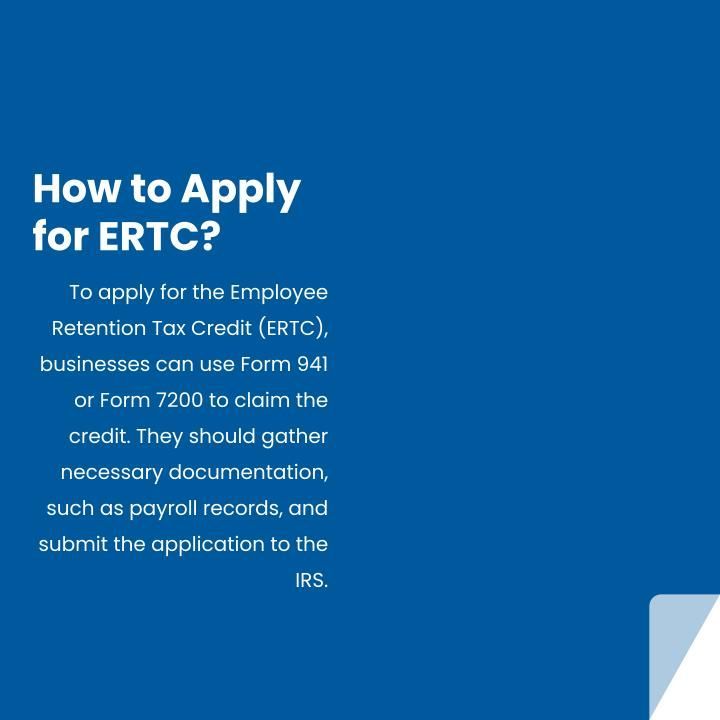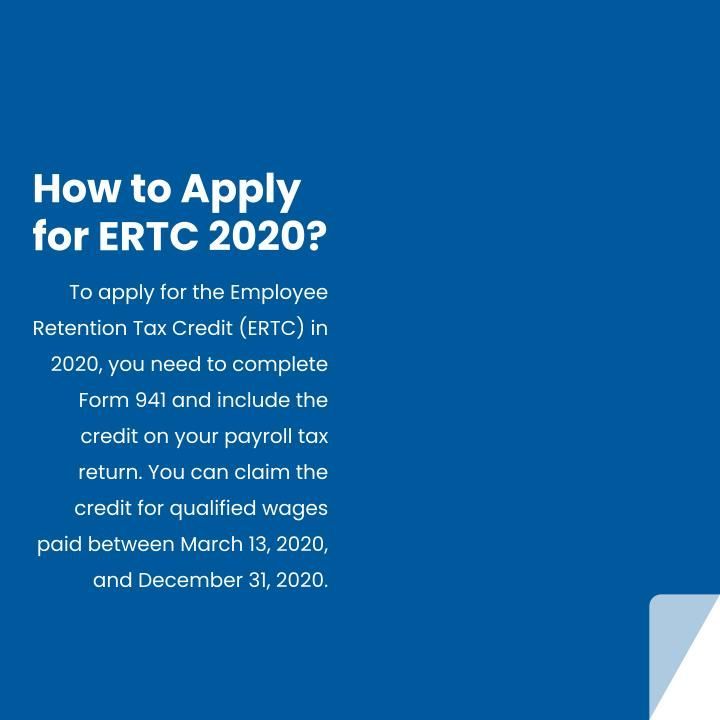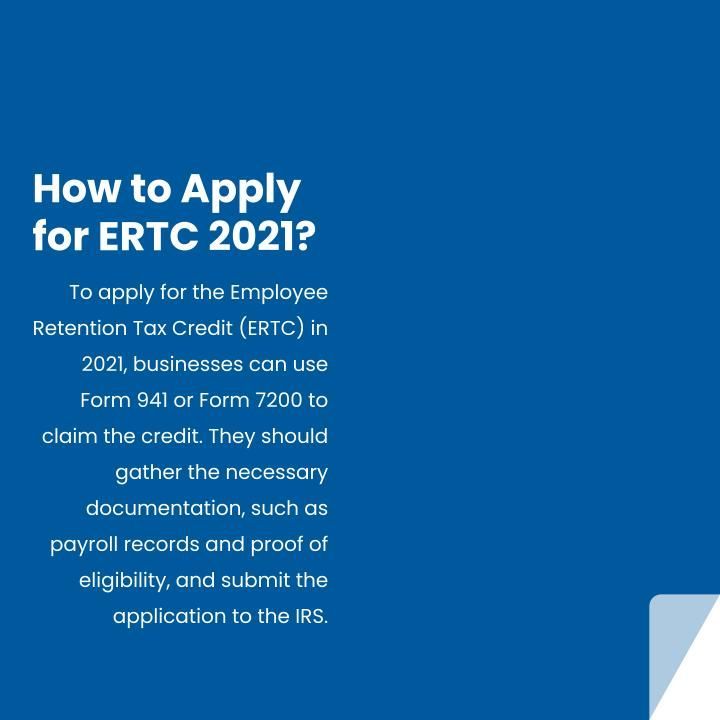Employee Retention Tax Credit - IRS
Employee Retention Tax Credit Information from the Internal Revenue Service
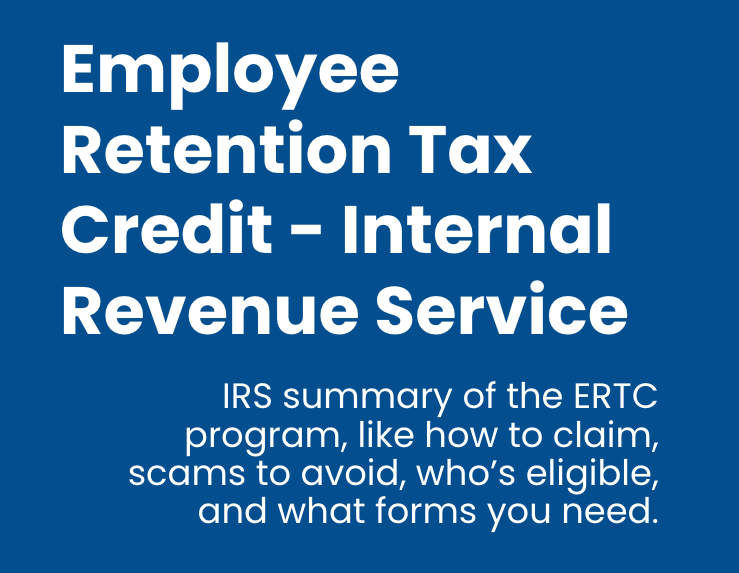
The Employee Retention Tax Credit (ERC) or Employee Retention Tax Credit (ERTC) - is a refundable tax credit for businesses and tax-exempt organizations affected by COVID-19.
Your eligibility depends on the period you claim the credit. The ERTC is not available to individuals.
See the IRS
frequently asked questions (FAQs) below for more information. Additional FAQs and resources can be found at our
ERTC Frequently Asked Questions.
ERTC Scams and Frauds to Look For
Have you noticed ERTC ads popping up everywhere? They're on the radio, TV, and even your social media feeds claiming the government owes you. The most convincing even look like official government letters, texts, emails, or phone calls. They're all encouraging you to "apply" for money by claiming the ERTC.
But you might not even qualify for it. And if you claim it wrongly, you're going to have to pay it back. Not just that, you might also owe penalties and interest. Remember, the only legit way to claim the ERTC is on a federal employment tax return. So, be careful and don't get caught out.
Warning Signs of ERTC Bad Actors
The Employee Retention Tax Credit is complex and requires careful review before applying, watch out for:
- Unsolicited ads, calls, emails, or texts from someone you don't know.
- Statements that the promoter or company can determine your ERTC eligibility within minutes.
- Upfront fees to claim the credit.
- Statements from the promoter that you qualify for the credit before discussing your tax situation.
- Statements from the promoter urging you to submit the claim because there is nothing to lose. In reality, those improperly receiving the credit could have to repay the credit – along with substantial interest and penalties.
ERTC promoters might not be totally honest about who's eligible. Using these companies, could put you at risk. Someone might use the credit as a trick to steal your identity or take a slice of the wrongly claimed credit.
For details about ERTC scams, see News Release IR-2023-105,
IRS alerts businesses, tax-exempt groups of warning signs for misleading Employee Retention scams; simple steps can avoid improperly filing claims
Free ERTC Eligibility Check from
Trusted ERTC Advisors
Eligibility Highlights
This benefit is for suitable businesses who paid their employees between March 12, 2020, and December 31, 2021. Whether a business is suitable and how much they can get depends on when they were affected by the situation. The ERTC is not for individuals.
In simple terms, the businesses and non-profit organizations that can get this are those that:
- Were shut down by government order due to the COVID-19 pandemic during 2020 or the first three calendar quarters of 2021, or
- Experienced the required decline in gross receipts during the eligibility periods during 2020 or the first three calendar quarters of 2021, or
- Qualified as a recovery startup business for the third or fourth quarters of 2021
ERTC Eligibility Highlights
Employers must have paid qualified wages to claim the ERTC.
Employers can
claim the ERTC on an original or adjusted employment tax return for a period within those dates.
See the
Employee Retention Credit - 2020 vs. 2021 Comparison Chart for more information about eligibility and credit amounts.
For more details, see
Frequently asked questions about the Employee Retention Credit.
ERTC Limitations
Certain limitations apply to the ERTC.
For example, employers can't claim the ERTC on wages that were reported as payroll costs for
Paycheck Protection Program (PPP) loan forgiveness. Qualified wages for purposes of the ERTC do not include payroll costs in connection with shuttered venue operators grants or restaurant revitalization grants.
Definitions of eligibility terms:
- Notice 2021-20
- Sections III.C. and III.D., Questions and Answers 10 through 22 – Suspension of operations due to orders from an appropriate governmental authority
- Section III.E., Questions and Answers 23 through 28 – Decline in gross receipts during 2020
- Notice 2021-23
- Section III.C – Decline in gross receipts during the first three calendar quarters of 2021
- Notice 2021-49
- Section III.D – Recovery startup business for third and fourth calendar quarters of 2021
Need Help with ERTC?
If you need help claiming the credit or correcting your tax return, connect with one of our ERTC Specialists with LINQQS.
How to Claim the ERTC
If a business was eligible but didn't apply for the tax credit when they first filed their employment tax return, they can still claim it. They just need to file adjusted employment tax returns.
For example, businesses that file quarterly employment tax returns can file
Form 941-X, Adjusted Employer's Quarterly Federal Tax Return or Claim for Refund, to claim the credit for prior 2020 and 2021 quarters.
Important Note about ERTC and Your Tax Liability
If you use Form 941-X to claim the Employee Retention Credit, you must lower your wage deduction by the same amount as the credit for that tax period. This means you might have to change your income tax return (like Forms 1040, 1065, 1120, etc.) to show that lower deduction.
For more information, see:
- Notice 2021-20, Section III.L., Question and Answer 60
- Notice 2021-49, Section IV.C., Timing of Qualified Wages Deduction Disallowance
ERTC Forms & Instructions
If you need to fix or claim your credit by changing your employment tax return, use the modified return and guidelines that are relevant to your business or organization and the appropriate tax period.
For employers that file quarterly:
- Form 941-X, April 2023 RevisionPDF
- Form 941-X Instructions, April 2023 RevisionPDF
- Form 941 Instructions, December 2021 RevisionPDF for additional information related to the ERTC for quarters in 2021
- Form 941 Instructions 2020 RevisionsPDF for additional information related to the ERTC for quarters in 2020
For agricultural employers:
- Form 943-XPDF
- Form 943-X Instructions, February 2023 RevisionsPDF
- Form 943 Instructions, December 2021 RevisionPDF for additional information related to the ERTC for quarters in 2021
For employers that file annually:
- Form 944-XPDF
- Form 944-X Instructions, February 2023 RevisionsPDF
- Form 944 Instructions, December 2021 RevisionPDF for additional information related to the ERTC for quarters in 2021
For railroad employers:
- Form CT-1XPDF
- Form CT-1X Instructions, March 2023 RevisionsPDF
- Form CT-1 Instructions, January 2022 RevisionPDF for additional information related to the ERTC for quarters in 2021
- Form CT-1 InstructionsPDF for additional information related to the ERTC for quarters in 2020
Penalty relief
Here’s information on penalty relief related to claims for the Employee Retention Credit.
Report tax-related illegal activities
The IRS urges you to report:
- Tax-related, illegal activities relating to ERTC claims
- Individuals who promote improper and abusive tax schemes
- Tax return preparers who deliberately prepare improper returns
To report tax-related illegal activities relating to ERTC claims, take these steps:
- Fill out Form 14242, Report Suspected Abusive Tax Promotions or PreparersPDF
- Include with your form any supporting materials
- Send your form and materials by fax or U.S. mail to the IRS Lead Development Center in the Office of Promoter Investigations
IRS Investigative Office
Mail:
Internal Revenue Service Lead Development Center
Stop MS5040
24000 Avila Road
Laguna Niguel, CA 92677-3405
Fax:
877-477-9135
More information
Find guidance by the period when qualified wages were paid:
- March 13, 2020, to Dec. 31, 2020
- Notice 2021-20
- Notice 2021-49, Section IV. Guidance on Miscellaneous Issues Applicable to the Employee Retention Credit for Both 2020 and 2021
- Revenue Procedure 2021-33
- Jan. 1, 2021, to June 30, 2021
- Notice 2021-23
- Notice 2021-49, Section IV. Guidance on Miscellaneous Issues Applicable to the Employee Retention Credit for Both 2020 and 2021
- Revenue Procedure 2021-33
- July 1, 2021, to Sept. 30, 2021
- Notice 2021-49
- Revenue Procedure 2021-33
- Oct. 1, 2021, to Dec. 31, 2021
- Notice 2021-49
- Notice 2021-65
Historical information
Legislation was passed that modified the ERTC after it was first enacted. If you need historical information about getting the advance payment of the ERTC in its first version, see Employee Retention Credit Frequently Asked Questions. These FAQs are not relevant to the current status of the ERTC.
Other ERTC Blog Posts and Updates
Free ERTC Eligibility Check with an Advisor
Affiliate Disclosure: Our advisors are from third-party ERTC advisory companies who can help you determine your eligibility and claim the ERTC at no upfront cost to you. They take their fee AFTER the tax credit is deposited and can offer funding if you don't want to wait. ERTCPays.com receive a small referral fee if you choose one of our recommended companies.
